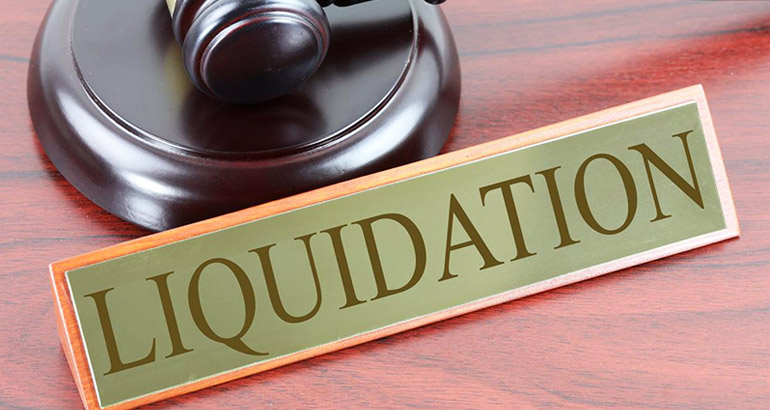Fascination About Company Liquidation
Table of ContentsThe Main Principles Of Company Liquidation The 8-Second Trick For Company LiquidationIndicators on Company Liquidation You Need To KnowFascination About Company LiquidationCompany Liquidation Fundamentals Explained
A liquidator is particularly designated to oversee the winding up of a business's affairs in order for it to be folded generally when the company is going insolvent. The liquidator is an unbiased 3rd party who oversees the sale of firm possessions in order to pay off any type of exceptional financial debts.Their function consists of, however is not restricted to: Objective Overseer: A liquidator is charged with acting as a neutral 3rd party to manage the entire business liquidation process. Develop Statement of Affairs: Liquidators must produce a detailed statement of events record. This file is dispersed to creditors, outlining the current financial standing of the company at the time of its liquidation.
After the liquidation of a business, its existence is gotten rid of from Companies Home and it discontinues to be a lawful entity. If directors navigated the process without concern, there would certainly be no penalties or personal obligation for strong financial obligations expected. Currently, with a fresh start, directors can explore new service possibilities, though specialist examination is advisable.
A Biased View of Company Liquidation
If more than 90% of all business shareholders concur, liquidation can take area on short notice within seven days, the minimum statutory notification for lenders. Typically, the larger the liquidation and the even more assets and resources the company has, the longer the process will certainly take. 'Do I have to pay to liquidate my firm?', the response will depend on whether or not your business has any kind of assets leftover when selling off.

We comprehend that no 2 business are the same, which is why we will put in the time to learn more about your service so we can recommend the very best course of action for you. We only function in your benefits, so you can be entirely confident in the service we supply.
Not known Details About Company Liquidation
In the UK, there is an established procedure to shutting down or restructuring a restricted business, whether it is solvent or financially troubled. This procedure is recognized as liquidation and can only be taken care of by a certified insolvency specialist (IP) in accordance with the Insolvency Act 1986. There are four major kinds of business liquidation process: Creditors' Voluntary Liquidation (CVL); Mandatory liquidation; Administration; and Participants' Volunteer Liquidation over here (MVL).

In these circumstances, it is very important that the firm stops trading; if the organization remains to trade, the directors could be held directly accountable and it might lead to the insolvency expert reporting wrongful trading, recognized as misfeasance, which may cause lawsuit. The directors assign a bankruptcy specialist and as soon as this has been agreed and confirmed, there is a meeting with the shareholders.
Naturally, if there are no shareholders, this action of the procedure is not necessary (Company Liquidation). The IP takes control of the business and begins the company liquidation procedure. The supervisors are no more involved in what takes place, including the sale of the firm's properties. Nevertheless, if the supervisors want any one of the assets, they can alert the IP.
Everything about Company Liquidation
The main difference is that the business's creditors related to the court for a winding up order which requires the insolvent company right into a liquidation process. For the most part, creditors take this activity as a last hotel since they have not gotten repayment via other kinds of arrangement. The court assigns a bankruptcy professional, likewise recognized as a main receiver, to conduct the obligatory firm liquidation process.
This sort of company liquidation is not volunteer and supervisors' conduct is reported to the UK's Secretary of State once the liquidation procedure has actually been completed. Therefore, any type of supervisor that stops working to accept the IP or has actually been associated with director misconduct, or a deceptive act, might cause severe consequences (Company Liquidation).
It is used as a way to safeguard the company from any legal activity by its lenders. The supervisors of the company look at this site agree to make routine repayments to settle their financial debts over a duration of time.
The Company Liquidation Statements
This offers the firm with time to create a plan moving forward to rescue the firm and avoid liquidation. At this factor, supervisors hand more info here control of the company over to the selected administrator. If a firm is solvent however the supervisors and shareholders intend to shut business, a Participants Volunteer Liquidation is the right choice.
The company liquidation procedure is handled by a liquidator assigned by the directors and investors of the company and they need to authorize a statement that there are no financial institutions continuing to be. The liquidation process for an MVL is similar to that of a CVL because assets are understood but the profits are dispersed to the supervisors and the investors of the business after the liquidator's fees have actually been paid.